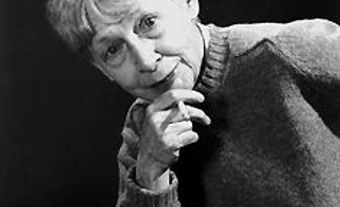Frederick Philip Grove, author, teacher, translator (b Felix Paul Berthold Friedrich Greve at Randomno, Germany 2 Feb 1879; d at Simcoe, Ont 19 Aug 1948). Grove was raised in Hamburg, attended university at Bonn and Munich, but left to become a poet, associated briefly with Stefan George and the neoimpressionists. Wanderungen (1902), a volume of poems, was his first book. He made a precarious living translating English and French authors into German, was in debt and briefly in prison. He left Germany in 1909 and under his new name in 1913 began a new life as a schoolteacher in Manitoba.
Devotion to Writing
Encouraged by the publication of Over Prairie Trails (1922) and Turn of the Year (1923), Grove gave up teaching after 1923 and devoted his life to writing, publishing one volume of essays, one volume of short stories (posthumously), a satire, 7 novels and a fictionalized autobiography, In Search of Myself (1946), which won a Governor General's Award. Settlers of the Marsh (1925), a harsh yet romantic story of a settler's ambition betrayed by sexuality, is said to have introduced realism to Canadian fiction. With Our Daily Bread (1928), The Yoke of Life (1930) and Fruits of the Earth (1933), he records the high ambitions, personal failures and belated self-knowledge of an aloof and strongly individual protagonist. Something of a dandy in his youth, the later, austere Grove is reflected in these uncompromising pioneers.
A Search for America (1927) is Grove's most successful book. Failure and a kind of triumph inform the 3 late works: The Master of the Mill (1944), In Search of Myself and Consider Her Ways (1947). The Master of the Mill is the first Canadian novel to explore the social effects of monopoly capitalism. Its protagonist, like the narrator of the autobiography, tries to account for his own, and mankind's, failure to realize his potential greatness.
Neglected in his lifetime, Grove has been studied in 6 books and numerous articles and theses. Desmond Pacey's Frederick Philip Grove (1945) was the first, but Pacey mistakenly accepted the autobiography as fact. D.O. Spettigue's FPG: The European Years (1973) brought the German and Canadian careers together. Margaret Stobie's Frederick Philip Grove (1972) examined his life and work in Canada. The principal German works are becoming available in translation. Unpublished novels, essays and poems, mostly in the Grove collection at U Man, are being published. The Letters were edited by Desmond Pacey (1976).

 Share on Facebook
Share on Facebook Share on X
Share on X Share by Email
Share by Email Share on Google Classroom
Share on Google Classroom

